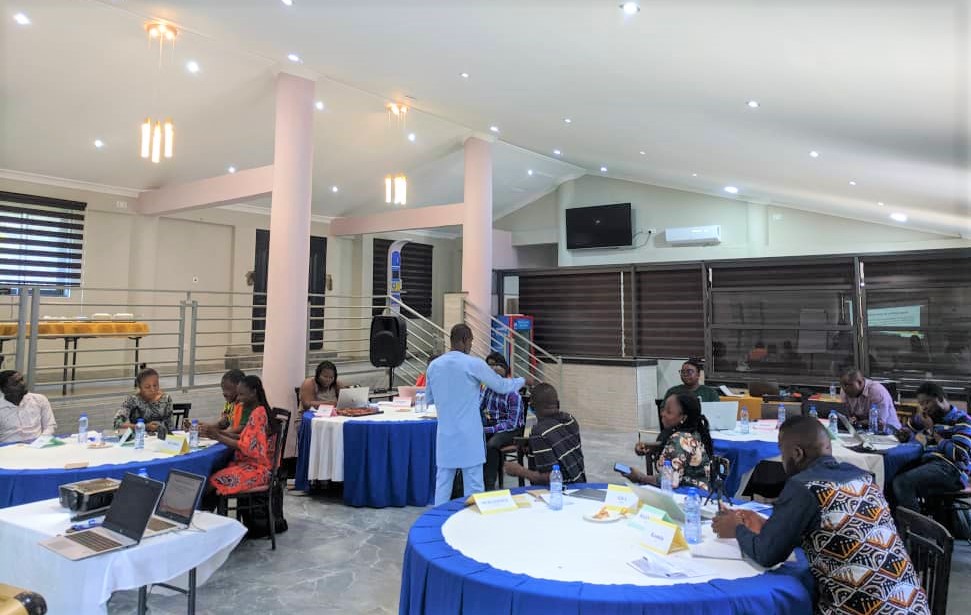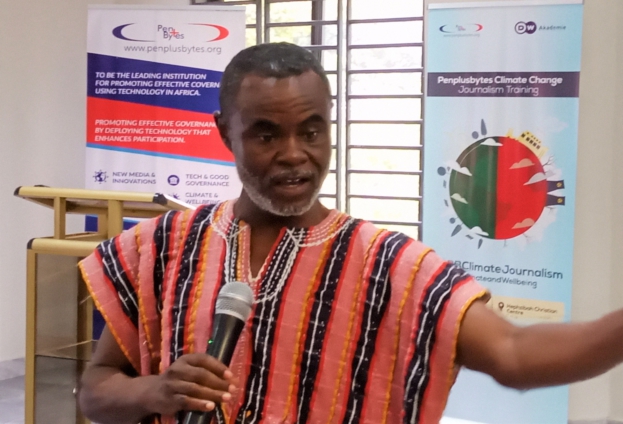The call has gone to policymakers, advocacy groups, and the media to take deliberate steps to ensure that the concerns of the people impacted by climate change reflect in their policies and reportages.
According to Dr. Martin Segtub, a climate change communication specialist, people are impacted differently, either geographically or socially, with different concerns that require different ways of highlighting their issues and dealing with them.
"Geographically because some places are more prone to climate change perturbations than other places. The coastal areas will have their challenges, and so will those in the Savannah", he explained.
He said whatever is done by the stakeholders must have policies and actions that settle the cases and concerns of the people in these different areas.
The dimensions of the different social groups, he said, also require specific attention to deal with the inequalities that arise.
"There are some people who are poor already, whose state could be made worse as a result of climate change issues”.

“And there may be some individuals who may be vulnerable. They may be blind, lame, sick, or women who are seen with some lifestyles, especially in some parts of the country where they are consigned to the house for activities such as cooking and farming, and all these things generate inequality," he averred.
He stressed the need to pay more attention to vulnerable groups, describing it as the only means of bridging the gap of inequalities triggered by climate change.
Dr. Segtub, also a lecturer at the University of Professional Studies, Accra (UPSA) made the call during a recent interview on the sidelines of a Climate Change journalism training at Aburi in the Akwapim South Municipality of the Eastern Region of Ghana.
The training, aimed at building the capacity of the selected journalists in climate change-related issues, was organized by Penplusbytes, a not-for-profit organization, and funded by DW Akademie.
Dr. Segtub, however, said it should also not be said that the people impacted by climate change are always victims every time.
"But in their state of being victims, is also the capacity they developed that can be considered anytime we need to do a national arrangement on how to fight climate change", he said, adding that a lot can be learned from the perspectives of many people, including children, for the climate change decision-making process.
On climate change reportage, Dr. Segtub advised journalists to respect the rights of the vulnerable impacted and not to worsen their plights with reports for some parochial interests.
He said, "even though they are vulnerable and have some challenges, we (journalists) must also be looking for the hope that we can get for them by giving them some respectable reportage so that it will not just be about how they are suffering. It must also be about how they can contribute to addressing this global phenomenon".
Latest Stories
-
Chantelle Boye-Hlorkah: Born in Liverpool, loved in Ghana
4 hours -
White House says Trump diagnosed with vein condition after questions about bruises
4 hours -
Mahama nominates two new MMDCEs for Ashanti Region
4 hours -
Snoop Dogg becomes Swansea co-owner and investor
5 hours -
Taxi driver jailed 12 years for defiling minor
5 hours -
Accra to host first global memorial honouring victims of transatlantic slave trade
5 hours -
Confusion rocks NPP as member disowns suit against party ahead of delegates conference
5 hours -
Wimbledon attracts record digital audience of 69.3 million to BBC
5 hours -
Newcastle turn to Wissa after ending Ekitike pursuit
6 hours -
Wolves induct Jota into club’s Hall of Fame
6 hours -
Man shot dead, another injured over missing mining equipment
6 hours -
Absa Black Star Marathon team meets African Paralympic President ahead of July 26 race
6 hours -
Akyem Wenchi galamsey pit disaster : Search ends, no bodies found
6 hours -
Speaker Bagbin refers final batch of Deputy Minister nominees to Appointments Committee
6 hours -
Labour MP Bell Ribeiro-Addy sacked as UK-Ghana trade envoy over disability vote rebellion
7 hours

